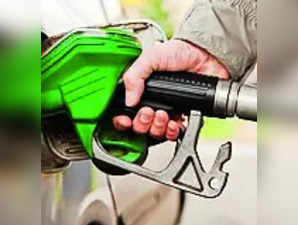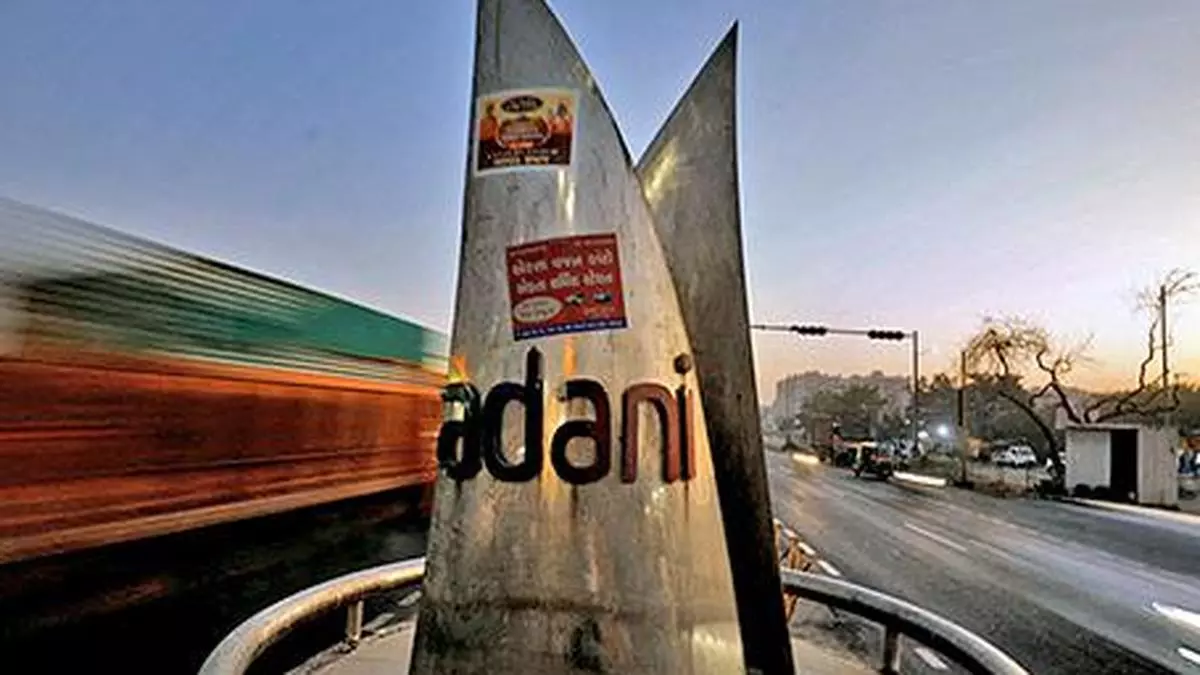Latest News
Oil prices pause after surging on Libyan outages, Middle East tensions
Last Updated: Aug 27, 2024, 07:51:00 AM ISTOil prices saw a minor decline in Asian trading after rising over 7% due to supply concerns linked to Middle East tensions and Libyan oil field closures. Brent crude and WTI futures both fell. The market had reacted to potential disruptions from Israel-Hezbollah clashes and Libya halting oil production amid political disputes.
Government lifts cap on sugar diversion for ethanol production starting in November 2024
Last Updated: Aug 29, 2024, 08:39:00 PM ISTStarting November 1, 2024, the Union government will lift the cap on sugar diversion for ethanol production, allowing the use of cane juice, syrup, and various molasses types. Additionally, distilleries can now purchase up to 2.3 million metric tons of rice from the Food Corporation of India for ethanol. This policy aims to boost renewable energy while maintaining stable sugar availability. The Department of Food and Public Distribution and the Ministry of Petroleum and Natural Gas will oversee the impact on sugar supplies.
Strong hybrids rev up to fly past EVs in green race as car sales make a pit stop
Last Updated: Aug 25, 2024, 12:03:00 PM ISTStrong hybrid vehicle sales grew 62.5% in the June quarter, driven by the Uttar Pradesh govt's incentives. In contrast, electric vehicle sales have stalled due to range anxiety and costs. Manufacturers are now exploring alternative technologies, such as hybrids and flex-fuel, to bridge the gap. The Indian EV infra remains a work in progress.
PNGRB seeks common carrier status for PSUs' ATF pipelines
Last Updated: Aug 22, 2024, 11:54:00 PM ISTThe Petroleum and Natural Gas Regulatory Board (PNGRB) aims to declare major oil companies' jet fuel pipelines to key airports as common carriers. This move could allow private sector players to utilize these pipelines, potentially lowering transport costs and creating a more competitive jet fuel market.
Applied Materials forecasts quarterly revenue above estimates
Last Updated: Aug 16, 2024, 08:51:00 AM ISTBooming demand for AI-powered chips has increased the need for sophisticated and expensive wafer fabrication equipment that is essential for chip manufacturing, benefiting companies such as Applied Materials.
Radical changes to India inflation regime are risky, study shows
Last Updated: Aug 21, 2024, 08:51:00 AM ISTThe paper by think-tank National Council of Applied Economic Research addresses the ongoing debate among policymakers over whether food prices should be stripped from inflation targeting. Economists argue that this approach is not feasible in a country like India, where food makes up nearly half of the consumer price index basket.
India imports USD 2.8 billion worth of crude oil from Russia in July
Last Updated: Aug 15, 2024, 11:22:00 PM ISTIndia purchased $2.8 billion worth of crude oil from Russia in July, making it the second-largest buyer after China. Russia became India's top oil supplier owing to discounted prices following the Ukraine invasion. These imports now constitute nearly 40% of India's total oil purchases, significantly shifting global trade patterns.
Why almost nobody is buying green hydrogen
Last Updated: Aug 19, 2024, 09:43:00 AM ISTHydrogen's promise as a clean fuel has led to plans for 1,600 plants globally. Yet, most lack firm buyers, with only 12% having secured agreements.
Govt revises windfall gains tax on petroleum products, new rates effective from August 17
Last Updated: Aug 16, 2024, 10:02:00 PM ISTThe government on Friday revised the windfall gains tax on petroleum products, reducing the levy on domestic crude oil to Rs 2,100 per tonne, down from the previous Rs 2,400 per tonne. However, the windfall gains tax on the export of petrol, diesel, and aviation turbine fuel (ATF) remains unchanged at NIL. These new rates will come into effect starting August 17, 2024.
PNG up five times, LPG doubled and ethanol blending up 10 times over last decade, says Hardeep Puri
Last Updated: Aug 16, 2024, 09:22:00 AM ISTUnion Minister Hardeep Singh Puri announced a notable increase in India’s piped gas connections and LPG users over the past decade. The country’s refining capacity and natural gas pipeline network expanded significantly. India also successfully kept fuel prices stable between January 2022 and July 2024, despite global price surges.
Mahindra Thar Roxx RWD: Unveiling Petrol and Diesel Variant Prices
August 15, 2024, 11:37 AM ISTEarlier this week, Mahindra announced the prices of the entry-level variants of the Mahindra Thar, starting at Rs. 12.99 lakh and Rs. 13.99 lakh (all prices, ex-showroom) for the petrol and diesel versions, respectively.
Oil prices rise on hopes of US rate cuts boosting fuel demand
Last Updated: Aug 15, 2024, 09:53:00 AM ISTOil prices saw a modest rise Thursday on optimism that potential U.S. interest rate cuts could stimulate economic activity and fuel demand. However, gains were limited by concerns over sluggish global demand. The increase followed a decline on Wednesday when U.S. crude inventories unexpectedly rose, and worries about a wider Middle East conflict eased.
Coal India removes quantity limit for power producers
Last Updated: Aug 13, 2024, 11:17:00 PM ISTThe change will apply to the power generators that have signed a fuel supply agreement with an enabling clause. The fillip for the state-owned miner is that the move would boost supplies at a time when coal demand is showing signs of slackening, the company said.
India's July fuel use gains over 7% y/y
Last Updated: Aug 08, 2024, 09:41:00 AM ISTOn a monthly basis, demand fell by 1.7% in the world's third-biggest oil importer and consumer.
Plans afoot to push carbon capture utilisation & storage tech: Niti Aayog Member
Last Updated: Aug 09, 2024, 12:00:00 AM ISTAccording to a report from the NITI Aayog back in 2022, when the discussion around the technology started gathering pace in the country, CCUS will be key in decarbonizing the industrial sector, which is hard to electrify and hard to abate. The concept has gathered momentum in the last two years because of its advantage in decarbonizing the power sector, given India's present reliance on coal for meeting over 70% of its electricity needs.
Govt to allow up to 35% bio-bitumen mixing, to save Rs 10,000 cr of foreign exchange outflows
Last Updated: Aug 07, 2024, 04:10:00 PM ISTUnion Road Transport Minister Nitin Gadkari declared that the government would allow a 35% blend of lignin with petroleum-based bitumen to lessen dependence on imports and reduce costs. The move is also intended to address air pollution from stubble burning. Bio-bitumen sourced from paddy straw has been successfully developed and patented. Numerous projects are underway to convert rice straw into different biofuels. These changes promise significant benefits for farmers and the environment, with trials to assess bio-bitumen's long-term performance in road construction currently being conducted.
Oriana Power to build electrolyser giga factory for green hydrogen, e-fuels
Last Updated: Aug 06, 2024, 12:47:00 PM ISTNew facility is being built in partnership with Splitwaters, a US-based provider of alkaline electrolyser and BOP equipment.
Toyota would pursue technologies that reduce use of fossil fuel: Dy MD Swapnesh Maru
Last Updated: Aug 06, 2024, 03:18:00 PM ISTToyota Kirloskar Motor (TKM) is committed to reducing its carbon footprint and fossil fuel use in India by adopting diverse technologies. Deputy MD Swapnesh Maru emphasized the need for a multi-pronged approach, including hybrids and blended fuels, due to India's energy challenges. TKM plans expansion with a new plant in Karnataka and aims to increase production capacity while exploring hydrogen as a future fuel.
Indian auto companies will soon produce 100% ethanol-run cars and 2-wheelers: Nitin Gadkari
Last Updated: Aug 05, 2024, 10:38:00 PM ISTRecently, Toyota has announced for setting up of a plant to produce flex cars in Aurangabad, Maharashtra, with an investment of Rs 20,000 crore. Gadkari says Tatas and Suzuki are also working on producing 100 per cent ethanol or flex engine cars. In the two-wheeler segment Bajaj, TVS and Hero are making flex-engine bikes and scooters.
After record profits, fuel retailers see profit slump in Q1
Last Updated: Aug 04, 2024, 11:27:00 AM ISTHindustan Petroleum Corporation Ltd (HPCL) posted 90 per cent drop in profit to Rs 633.94 crore as compared to an earning of Rs 6,765.50 crore in April-June 2023 and Rs 2,709.31 crore in the preceding March quarter.
Rosatom supplies advanced fuel for Kudankulam Nuclear Power plant
Last Updated: Aug 02, 2024, 05:21:00 PM ISTRosatom's TVEL Fuel Company initiated nuclear fuel supply for Kudankulam NPP’s units 3 and 4. Utilizing advanced TVS-2M fuel, the VVER-1000 reactors in Tamil Nadu extend fuel cycles to 18 months, improving efficiency. Units 1 and 2, commissioned in 2013 and 2017, already benefit from these upgrades. Construction of additional units continues.
Oil prices set for fourth weekly fall on demand concerns
Last Updated: Aug 02, 2024, 04:36:00 PM ISTOil prices held steady on Friday but remained on course for a fourth successive weekly decline as signs of weak growth in global fuel demand outweighed fears of supply disruption in the Middle East.
Petrol and Diesel Prices July 20: Check petrol prices in Delhi, Noida, Mumbai, and other cities
August 02, 2024Petrol and Diesel Prices July 20: The last country-wide change in fuel rates was on 21 May last year, when Finance Minister Nirmala Sitharaman slashed excise duty on petrol by Rs 8 per litre and Rs 6 per litre on diesel.
Petrol and Diesel Prices July 26: Check petrol prices in Delhi, Noida, Mumbai, and other cities
August 02, 2024The public sector oil marketing companies (OMCs) including Bharat Petroleum Corporation Ltd (BPCL), Indian Oil Corporation Ltd (IOCL) and Hindustan Petroleum Corporation Ltd (HPCL) change the prices daily in line with international benchmark prices and forex rates.
July petrol sales up 10%, diesel 4.3%
Last Updated: Aug 02, 2024, 01:24:00 AM ISTPetrol sales rose 10% and diesel 4.3% in July compared to the previous year as economic activity gained pace, according to oil ministry data. Jet fuel consumption expanded by 9%, while cooking gas sales increased by 11% in July.
Oil set to fall for fourth week as demand concerns weigh on sentiment
Last Updated: Aug 02, 2024, 07:05:00 AM ISTOil prices increased on Friday, yet were poised for a fourth consecutive weekly drop, driven by weaker global fuel demand as indicated by recent manufacturing data from the U.S., Europe, and Asia. Concerns about Chinese demand and potential supply disruptions in the Middle East further influenced the market outlook.
India's July diesel, jet fuel exports to Singapore, Australia set to hit 2-1/2-year high
Last Updated: Jul 31, 2024, 11:27:00 AM ISTIndia's diesel and jet fuel exports to Singapore and Australia hit their highest levels in 2-1/2 years in July, fueled by waning European demand and cheaper shipping costs. Industry sources indicate that Australia's increased imports were also due to planned refinery maintenance and new government mandates for refined product stockpiles.
Adani Group to commission $4-billion petro-chem project by next year
Updated - July 28, 2024 at 03:33 PM.The initial phase, with a capacity of 1 million tonne per annum, is slated for commissioning by December 2026, they say
China's COSCO Shipping, Fortescue to build green fuel supply chain
Last Updated: Jul 30, 2024, 09:51:00 AM ISTThe memorandum of understanding includes exploring construction and deployment of green ammonia-fuelled vessels owned either by COSCO or jointly owned by both companies.
Electric cars help the climate. But are they good value?
Last Updated: Jul 30, 2024, 09:49:00 AM ISTElectric vehicles often have higher initial costs and may depreciate faster, but lower maintenance and fuel savings can balance this.


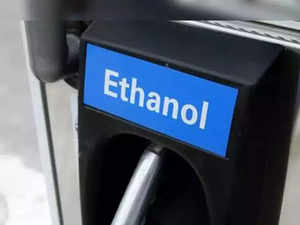

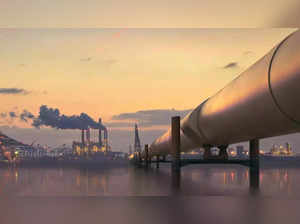

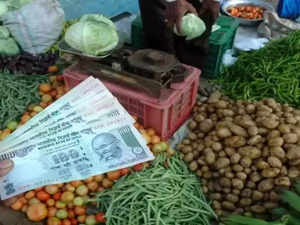

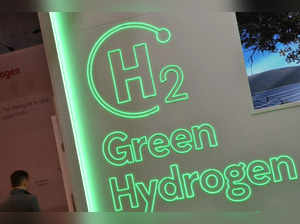

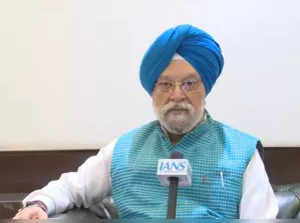



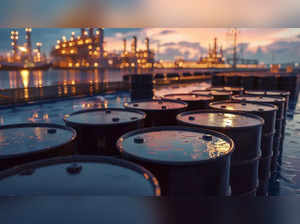

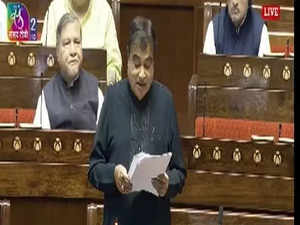
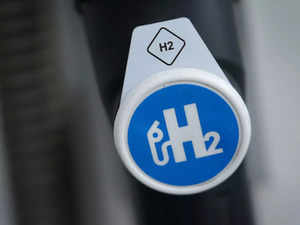



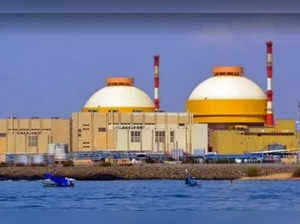
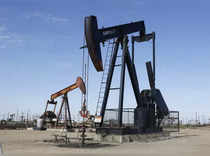
)
)
